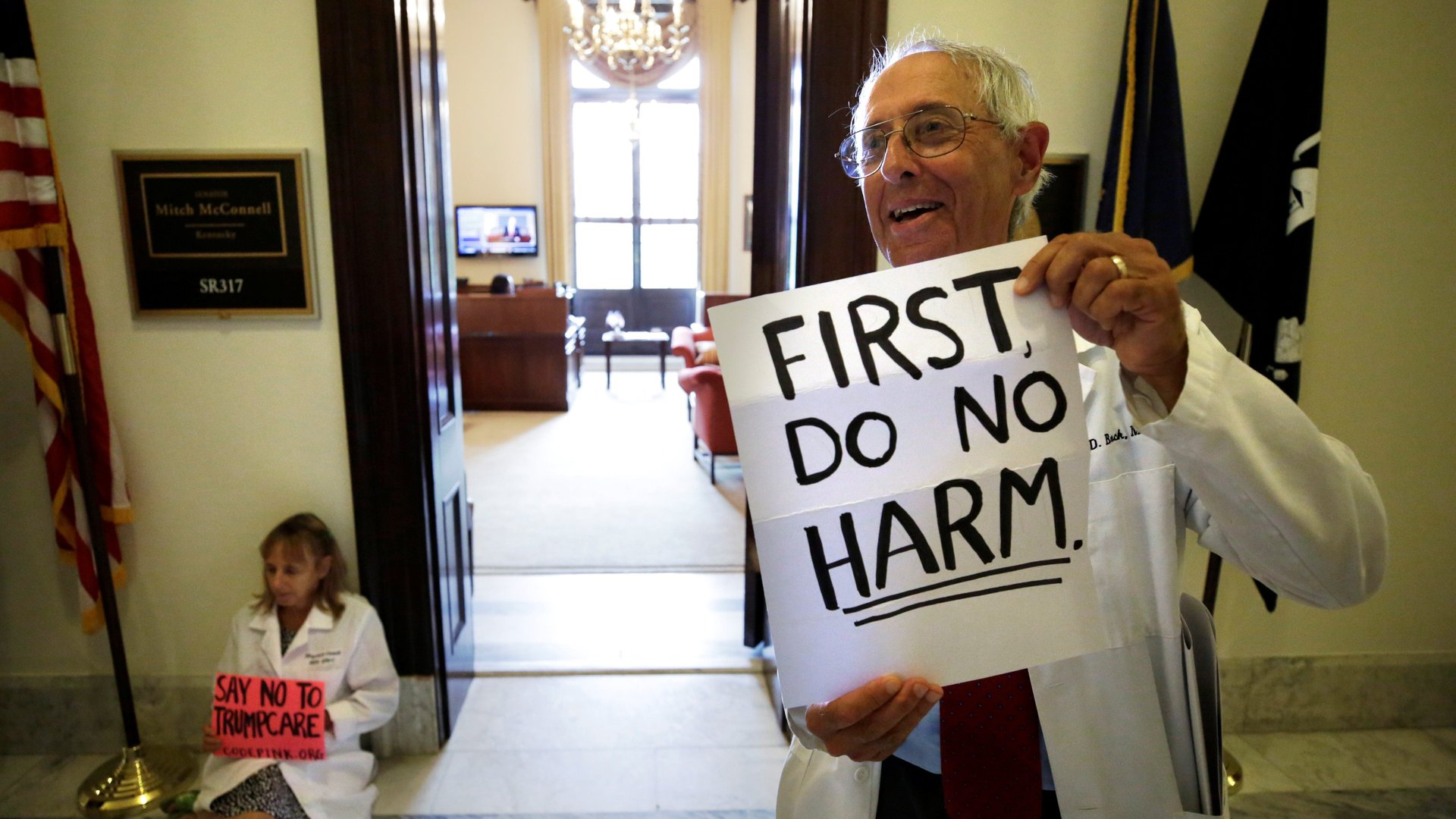Now that the Republican health-care overhaul has failed, will Obamacare “implode”?
The Better Care Reconciliation Act is dead; long live the Affordable Care Act. But how long?


The Better Care Reconciliation Act is dead; long live the Affordable Care Act. But how long?
US president Donald Trump predicted that the ACA, popularly known as Obamacare, would “implode” (and also “explode”) under the weight of rising costs if Republican alternatives (the BCRA in the Senate, the AHCA in the House), which would have cut insurance to millions, didn’t pass. With those initiatives dead for want of support, Trump—having previously called on the party to repeal the ACA without replacing it—now says it should simply be left to “fail.”
So will it fail? Short answer: no. As Quartz’s Tim Fernholz wrote a month ago, a lot of the ACA’s recent problems are teething troubles exacerbated by the effort to repeal it:
The most vulnerable group in the current system are the 12.2 million people on the individual insurance market…These are the people insured through the Obamacare markets frequently described as “failing” by president Donald Trump’s team. The better descriptor is “erratic.” That’s because insurers, still adapting to these new markets, have to submit their prices to the market six months in advance, and their efforts to do so in the first four years of their existence have resulted in some jarring premium hikes. Most of those hikes haven’t hit consumers, but instead have been borne by government subsidies.
That process—of insurers figuring out how to price these new markets—has been thrown a jarring new loop by the Republican administration. The Trump administration has gone back and forth about whether to extend those government subsidies, known as cost-sharing reductions or CSRs. And separately, the Republican attempt to overhaul the law had created broader uncertainty, since it’s not clear what the rules of the markets will be, or if people will even be required to get health insurance—a key question for companies that set prices based on who they insure.
That’s set up a dangerous cycle: Insurers are reluctant to embrace these uncertain markets, so some aren’t taking the risk. That is leaving some rural counties in the US with only one individual insurer available—which results in higher prices—or even no provider at all. The consultancy Oliver Wyman says nearly two thirds of this year’s higher prices in these regulated markets are because of this factor, writing that “if an insurer submits a rate increase of 30%, two thirds of that increase will be attributable to the CSR and individual mandate uncertainty.”
This isn’t inevitable. Most forecasters, including the Congressional Budget Office, believe the markets will be largely stable if left untouched. Even now, new partnerships are emerging; for example, the health start-up Oscar is partnering with the Cleveland Clinic to provide exchange plans in a number of under-served Ohio counties. (Oscar’s co-founder, Josh Kushner, is the brother of White House adviser Jared Kushner.) Medica, a small non-profit insurer operating mostly in the midwest, told Vox’s Sarah Kliff it’s bullish on expanding into exchanges abandoned by larger competitors, but only if it has some certainty about what to expect.
Initial submissions for health insurers who wish to participate in the health insurance exchanges next year are due by June 21, according to federal officials who manage the program. But insurers have until mid-August to finalize their proposals, ahead of an open-enrollment period that begins in the fall.
In short, now that a repeal is off the table, things should settle back down and the markets should thrive.
The Republican party hasn’t given up on a reform entirely; Senate majority leader Mitch McConnell wants a vote to repeal the ACA with a two-year delay so Congress can work on a replacement. However, that’s unlikely to pass right now. And time is not on the Republicans’ side, as Fernholz pointed out:
In the meantime, the Affordable Care Act’s popularity continues to rise. But the troubled health insurance markets are convincing many Democratic politicians that their attempts to find a public-private partnership were misguided, and that a single-payer health care system is the only solution. That may leave Republicans, if they are unable to cut back the benefits of Obamacare’s insurance exchanges, faced with a need to accommodate Obamacare’s market-based health insurance while they still can.